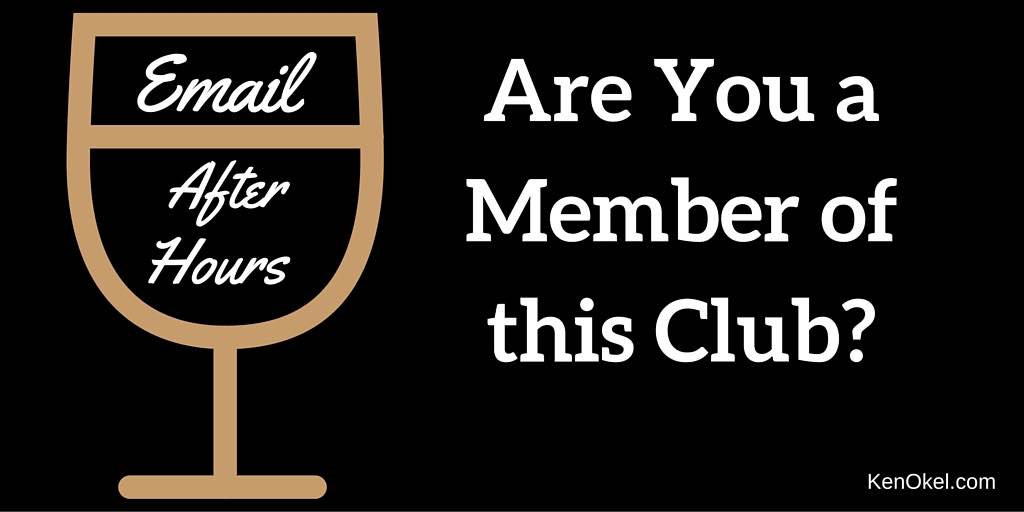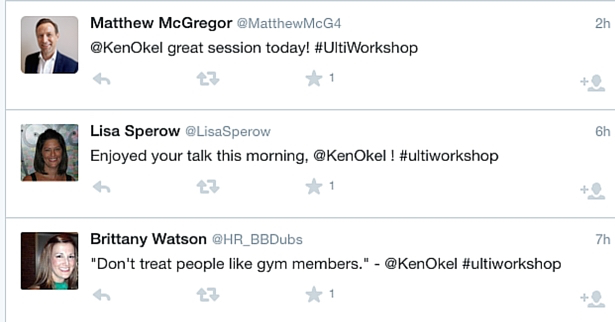 At some point in time, our ability to check email after hours has led to it becoming an expected part of a job. But has the convenience of mobile technology and laptops made email a set of handcuffs on employee productivity and happiness?
At some point in time, our ability to check email after hours has led to it becoming an expected part of a job. But has the convenience of mobile technology and laptops made email a set of handcuffs on employee productivity and happiness?
A trio of university researchers believe the practice of checking email after hours is taking a big toll on employees. Exhausted But Unable to Disconnect is a new paper that will be presented formally in August.
From a preview, we know the researchers, who polled 600 professionals, found that checking email after hours hurt employee well-being, work-family balance, and job performance. These people are found to be unable to fully disengage from work, which led to chronic stress and emotional exhaustion. That should worry you.
In total, the participants spent an average of eight hours, answering their emails after hours. That’s a whole extra day of work. Some of the stress was found to have been caused by the expectation to check inboxes.
I look forward to learning more about this research. In the meantime, consider these tips to help your team best define your use of email after hours:
Talk About Email After Hours
Does your organization have an after hours email policy? In many places, it’s evolved on its own, without much thought. Maybe everyone needs to sit down and discuss what is expected and whether putting in the extra work really will help the bottom line. Some people may have more time, while others may have obligations that make being online inconvenient.
Is writing and reading those emails supported by actual need or merely one person’s personal preference? If these messages can wait, then perhaps they should?
If people have to guess your policy, there’s a good chance they’ll guess incorrectly.
Consider the Interruption of Email After Hours
For some, sending or answering after hours emails is merely a way for them to capture a thought before it passes or reduce the amount of emails they have to touch when they start work the following day.
These are understandable practices but if you’re the sender, do you consider the interruption you might be creating in the recipient’s life? Would you do the same thing if every email you sent was the equivalent of knocking on someone’s door at home?
Just because email gives you a certain level of separation doesn’t mean you should not consider how it affects the other person.
Code After Hours Emails
Every message can’t be urgent but every message may appear as if it is in your inbox. Can your team come up with a way to code messages that are sent after hours. This can be a low tech solution.
For instance, if it’s low priority, then you can put a term like, “FYI” in the subject line. This way people know the message does not require an immediate response.
You can do the same to demonstrate urgency but make sure that everyone shares the same definition of urgency.
Chart out the level of response with your team and agree to stick with those codes.
Email will continue to be an important tool in the workplace. Make sure it’s an invited guest in your home.







